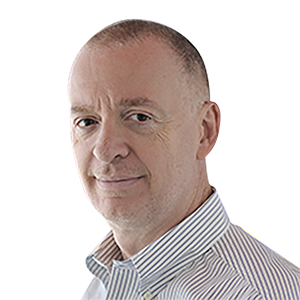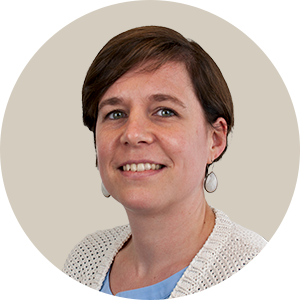Approximately 1 in 3 people in the US will be affected by cancer during their lifetimes. 5-10% of those cancers are believed to be due to a hereditary predisposition.
These hereditary predispositions may be shared by a person’s family members including parents, siblings, and offspring. For example, if a mother or father is found to be a carrier for a pathogenic BRCA2 variant, each of their offspring also have a 50% chance of inheriting the pathogenic variant, which may lead to an increased risk for developing certain types of cancer
Assessing your patient’s DNA for pathogenic and likely pathogenic variants can help other family members to assess their risks for potential cancer development.
Through Baylor Genetics, clinicians can order a wide range of tests including single gene studies, disease-specific panels, and comprehensive studies. Screening allows for a more accurate determination of personal and familial cancer risks and may potentially inform medical management decisions. Hereditary cancer screening is suitable for individuals who are suspected of having an inherited cancer syndrome or have a personal history of cancer suggestive of an underlying genetic condition.
Know your patients risks with Hereditary Cancer testing
SAMPLE TYPE |
REQUIREMENTS |
SHIPPING CONDITIONS |
|
|
Ship at room temperature in an insulated container by overnight courier. If shipping during the summer months, please include a cold-pack to avoid extreme temperatures. Do not heat or freeze. |
|
|
Ship on minimum of 10 lbs. of dry ice in an insulated container by overnight courier. |
|
Ship at refrigerated or room temperature in an insulated container by overnight courier. Do not heat or freeze.
Specimen should arrive in laboratory within 48 hours of collection. |
|
|
|
Ship at room or refrigerated temperature in an insulated container by overnight courier. Do not heat or freeze.
Specimen should arrive in laboratory within 24-48 hours of collection. |
|
|
Ship at room temperature in an insulated container by overnight courier. May also be shipped frozen on minimum of 10 lbs of dry ice in an insulated container by overnight courier. |
Characterization of chromosomal abnormalities in pregnancy losses reveals critical genes and loci for human early development
Chen Y, Bartanus J, Liang D, Zhu H, Breman AM, Smith JL, Wang H, Ren Z, Patel A, Stankiewicz P, Cram DS, Cheung SW, Wu L, Yu F. Characterization of chromosomal abnormalities in pregnancy losses reveals critical genes and loci for human early development. Hum Mutat. 2017 Jun;38(6):669-677. PMID: 28247551
Mechanisms for complex chromosomal insertions
Gu S, Szafranski P, Akdemir ZC, Yuan B, Cooper ML, Magriñá MA, Bacino CA, Lalani SR, Breman AM, Smith JL, Patel A, Song RH, Bi W, Cheung SW, Carvalho CM, Stankiewicz P, Lupski JR. Mechanisms for Complex Chromosomal Insertions. PLoS Genet. 2016 Nov 23;12(11):e1006446. PMID: 27880765
Genome-wide copy number analysis on DNA from fetal cells isolated from the blood of pregnant women
Kølvraa S, Singh R, Normand EA, Qdaisat S, Van denVeyver IB, Jackson L, Hatt L, Schelde P, Uldbjerg N, Vestergaard EM, Zhao L, Chen R, Shaw CA, Breman AM, Beaudet AL. Genome-wide copy number analysis on DNA from fetal cells isolated from the blood of pregnant women. Prenat Diagn. 2016 Oct 19. PMID: 27761919
4p16.3 microdeletions and microduplications detected by chromosomal microarray analysis: New insights into mechanisms and critical regions
Bi W, Cheung SW, Breman AM, Bacino CA. 4p16.3 microdeletions and microduplications detected by chromosomal microarray analysis: New insights into mechanisms and critical regions. Am J Med Genet A. 2016 Oct;170(10):2540-50. PMID: 27287194
Comparison of three whole genome amplification methods for detection of genomic aberrations in single cells
Normand, E., Qdaisat, S., Bi, W., Shaw, C., Van den Veyver, I., Beaudet, A., Breman, A. (2016) Comparison of three whole genome amplification methods for detection of genomic aberrations in single cells. Prenat Diagn. 2016 Sep;36(9):823-30. PMID: 27368744
Evidence for feasibility of fetal trophoblastic cell-based noninvasive prenatal testing
Amy M. Breman, Jennifer C. Chow, Lance U’Ren, Elizabeth A. Normand, Sadeem Qdaisat, Li Zhao, David M. Henke, Rui Chen, Chad A. Shaw, Laird Jackson, Yaping Yang, Liesbeth Vossaert, Rachel H.V. Needham, Daniel Campton, Jeffrey L. Werbin, Ron C. Seubert, Ignatia B. Van den Veyver, Jackie L. Stilwell, Eric P. Kaldjian, Arthur L. Beaudet. Evidence for feasibility of fetal trophoblastic cell-based noninvasive prenatal testing. Prenat Diagn. 2016 Sep 12. PubMed: 27616633
Triploidy mosaicism (45,X/68,XX) in an infant presenting with failure to thrive
Posey J, Mohrbacher N, Smith JL, Patel A, Potocki L, Breman AM. Triploidy mosaicism (45,X/68,XX) in an infant presenting with failure to thrive. Am J Med Genet A. 2015 Nov 14. PMID: 26566716
Fibrochondrogenesis results from mutations in the COL11A1 type XI collagen gene
Tompson SW, Bacino CA, Safina NP, Bober MB, Proud VK, Funari T, Wangler MF, Nevarez L, Ala-Kokko L, Wilcox WR, Eyre DR, Krakow D, Cohn DH. Fibrochondrogenesis results from mutations in the COL11A1 type XI collagen gene. Am J Hum Genet. 87:708-712, 2010. PMID: 21035103
Who should consider Hereditary Cancer Testing?
MORE THAN ONE PRIMARY CANCER IN THE SAME PERSON
MULTIPLE CLOSE FAMILY MEMBERS WITH CANCERS DIAGNOSED YOUNGER THAN AGE 50
PATIENTS WITH RARE CANCERS AT ANY AGE
3 OR MORE CLOSE FAMILY MEMBERS DIAGNOSED WITH CANCER
HISTORY OF CANCER FOR WHICH THERE IS A HIGH INCIDENCE IN THE INDIVIDUALS ETHNIC GROUP
PATIENTS WITH PREVIOUSLY TARGETED GENETIC TESTING WHO MAY BENEFIT FROM AN EXTENDED PANEL
HEREDITARY CANCER PANELS
TEST CODE |
TEST NAME |
22350 |
BRCA1/BRCA2 Panel |
20004 |
Comprehensive Hereditary Cancer Panel – 61 genes |
22304 |
Hereditary Brain/CNS/PNS Cancer Panel – 17 genes |
22404 |
Hereditary Breast/Ovarian/Endometrial Cancer Panel – 23 genes |
24000 |
Hereditary Cancer Panel – 27 genes |
22804 |
Hereditary Colorectal/Gastrointestinal Cancer Panel – 22 genes |
22604 |
Hereditary Endocrine Cancer Panel – 15 genes |
22704 |
Hereditary Leukemia/Lymphoma Panel – 13 genes |
TEST CODE |
TEST NAME |
22904 |
Hereditary Melanoma Panel – 4 genes |
23304 |
Hereditary Pancreatic Cancer Panel – 16 genes |
23104 |
Hereditary Paraganglioma/Pheochromocytoma Panel – 9 genes |
23404 |
Hereditary Prostate Cancer Panel – 5 genes |
22504 |
Hereditary Renal Cancer Panel – 12 genes |
23000 |
High Risk Hereditary Breast Cancer Panel – 7 genes |
23204 |
High Risk Hereditary Colorectal Cancer Panel – 12 genes |
SINGLE GENE TESTING
|
TEST CODE |
TEST NAME |
# OF GENES |
|
6720 |
B-Cell Clonality Screening (IgH and IgK) by PCR |
|
|
6520 |
BCR-ABL1, Major (p210), Quantitative |
|
|
22820 |
BCR-ABL1, Qualitative Analysis w/ Reflex to BCR-ABL1 Quantitative |
|
|
9305 |
BCR-ABL1 Mutation Analysis for Tyrosine Kinase Inhibitor Resistance by NGS |
|
|
9003 |
BRAF V600 Mutation Analysis |
|
|
9016 |
CALR (Calreticulin) Exon 9 Mutation Analysis by PCR |
|
|
9086 |
CEBPA Mutation Detection |
|
|
9030 |
EGFR Mutation Detection by Pyrosequencing |
|
|
9045 |
FLT3 Mutation Detection by PCR |
|
|
9104 |
Gastrointestinal Stromal Tumor Mutation (KIT, PDGFRA) |
|
|
9060 |
IGHV Mutation Analysis by Sequencing |
TEST CODE |
TEST NAME |
9015 |
JAK2 Exon 12 Mutation Analysis by PCR |
9010 |
JAK2 Gene, V617F Mutation, Qualitative |
9103 |
KIT Mutations, Melanoma (including PDGFRA) |
9105 |
KIT Mutations in AML by Fragment Analysis and Sequencing |
9128 |
KRAS Mutation Detection |
9150 |
Microsatellite Instability (MSI), HNPCC/Lynch Syndrome, by PCR |
9020 |
MPL Codon 515 Mutation Detection by Pyrosequencing, Quantitative |
9005 |
NPM1 Mutation Detection by RT-PCR, Quantitative |
9080 |
PML-RARA Translocation, t(15;17) by RT-PCR, Quantitative |
9217 |
T-Cell Clonality Screening by PCR |
9055 |
TP53 Somatic Mutation, Prognostic |











